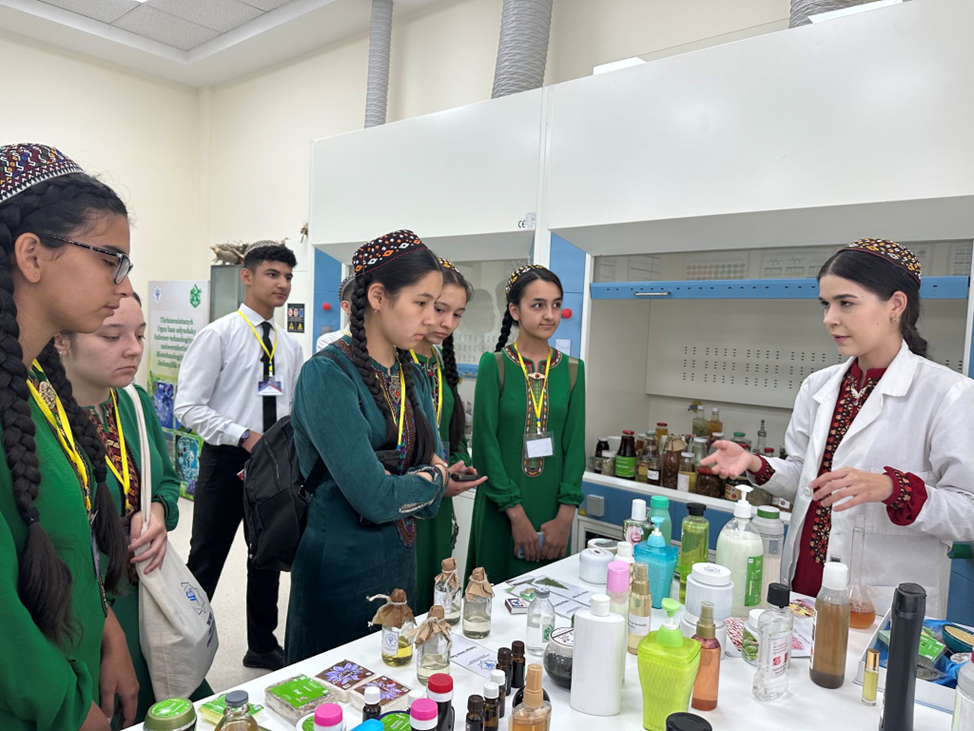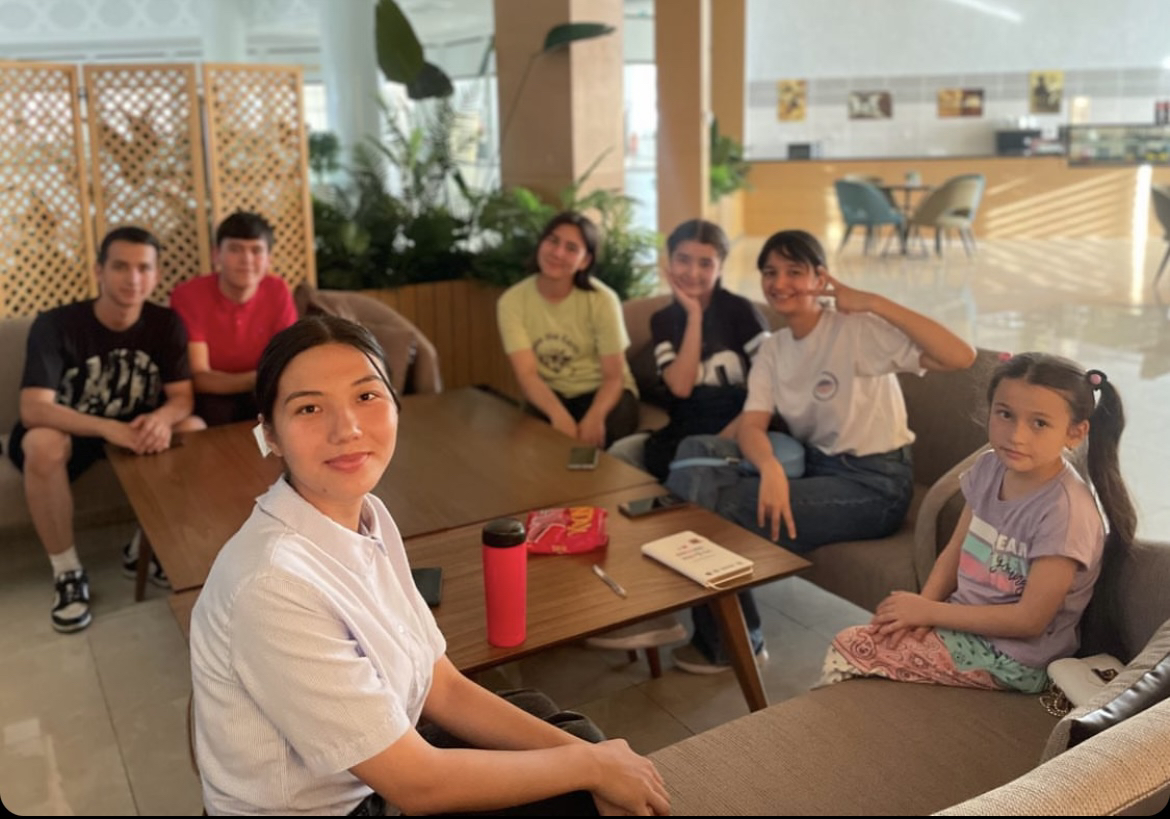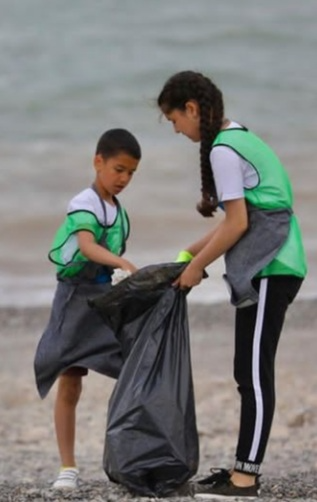Kazakhstan Chapter
сәлем және қош келдіңіз! This is the Kazakhstan chapter of Education4Earth!. We focus on similar issues as the Turkmen chapter and the Uzbekistan chapter, plastics pollution and desertification, but also on other issues, namely the degradation of the Aral and Caspian Seas. Here’s a little more about us:

Environmental Education Program
We have an emphasis on concepts in ecology, geology chemistry, math (up to calculus), and language. Due to the lack of scientific knowledge-building and STEM education in school, we focus on these subjects to help students not only understand fundamental knowledge in the sciences, but also use that to better understand the environmental challenges that we face.

And one of those challenges is spreading awareness and taking action to slow down degradation of the Aral and Caspian, some of the largest bodies of freshwater in Asia. Back in Soviet Russia, the rivers feeding these two seas were exploited to expand the cotton and farming industry, what remains are two seas that are slowly disappearing. So, our ecology course reflects that, through ecology in the context of this, and of environmental challenges as a whole. Since the situation with the Aral and Caspian Sea is a historical and scientific issue, we also try to teach it in that way-- we explore the history of the Soviet Union, and how that would lead to the eventual decline of the two freshwater seas. Also, because water shortages are a problem linked to the decline in water levels, we also bring in history and policy to examine how past civilizations have dealt with or have been impacted by these issues.
Similar to our friends in Tunisia, we help students understand how the different desert land formations relates to atmospheric circulation, and extend on ideas of erosion and weathering in the context of the Caspian and Aral Sea. We currently have 98 members and 189 students.
Long-Term Projects
In collaboration with our friends from the Turkmenistan and Uzbekistan chapters, we are currently working on a research project to determine ideal water management techniques on small-scale family farms. As part of this project, we will be implementing cover crops, as well as connecting with local community members to teach them about these techniques. The project also consists of applying the understanding of geological concepts taught through the education program, as well as surveying members’ local communities.
Beyond this project, we are collaborating with the Turkmenistan chapter to plan and run the “ReMade” vlog project aimed at helping to address the plastic bottle pollution issue in the area.
